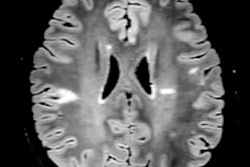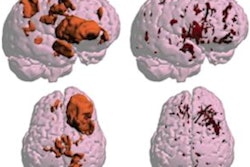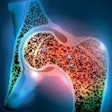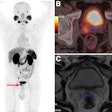
A new German study looking at breast cancer brain metastasis detection by MRI has revealed that patients survive longer and may undergo less aggressive treatment if metastases are discovered before the onset of symptoms. The findings are to be presented at the virtual European Breast Cancer Conference (EBCC) on 2-3 October.
Incidence of brain metastasis in breast cancer patients is on the rise, with this type of spread often making the disease unstoppable. However, while patients with other cancers that spread to the brain, such as lung cancer, are scanned for metastasis on diagnosis, this is not the case for breast cancer patients who are asymptomatic for brain disease.
"The prognosis for patients with breast cancer that has spread to the brain is poor, and survival for these women hasn't improved over the last few decades. We do not currently test for asymptomatic brain metastases in breast cancer patients, although this does happen in some other types of cancer," noted Dr. Elena Laakmann from the department of gynecology at the University Medical Center Hamburg-Eppendorf, ahead of the congress.
 Dr. Elena Laakmann.
Dr. Elena Laakmann.Now, however, the stage is set for initial steps toward building a strategy for the systematic use of brain MRI scans of breast cancer patients who are at high risk of developing brain cancer metastasis.
In this observational study, the Hamburg research team aimed to find out more about breast cancer that has spread to the brain and see whether there might be any advantage to detecting brain metastases before the development of neurological symptoms. The researchers investigated a group of 2,589 German patients who were diagnosed with breast cancer that had already spread to their brains between 2000 and 2019.
Of these, 2,009 patients had already experienced symptoms of brain metastases, such as headache, impaired vision, nausea, or seizure, while the remaining 580 women had no symptoms of brain metastases and were only diagnosed by chance.
The following table shows survival in months for breast cancer patients who had symptomatic and asymptomatic brain metastases found on their MRI scans.
| Survival of breast cancer patients with brain metastases detected on MRI | ||
| Patients with symptomatic brain metastasis = 2,009 | Patients with asymptomatic brain metastasis = 580 | |
| Survival in months | 6.9 | 10.4 |
| HER2-positive survival in months | 11.5 | 15.2 |
In the two groups, the researchers found that asymptomatic women were generally fitter and had fewer and smaller tumors in their brains than symptomatic women. They also tended to have less aggressive treatments and to live longer by an average of 3.5 months (survival at an average of 10.4 months versus 6.9 months).
The team also saw that patients with HER2-positive breast cancer who were asymptomatic for brain metastasis survived an average 3.7 months longer than symptomatic women (survival at an average of 15.2 months versus 11.5 months).
"Overall, these results suggest that women may be better off if their brain metastases are diagnosed before they begin to cause symptoms. It could be that the asymptomatic women are being diagnosed at an earlier stage, which we would expect to increase survival time, the smaller size and number of brain metastases could also be factors," noted Laakmann.
"We now need to carry out a clinical trial to see what happens if we screen high-risk breast cancer patients for brain metastases. This will verify whether doing so could increase survival, symptom control or quality of life," she added.
What's the significance?
Commenting on the data in the presentation, Prof. David Cameron, professor of medical oncology at the University of Edinburgh and a member of the 12th EBCC organizing committee, stated that despite major improvements in the treatments available for breast cancer patients, very few good treatments are available for when the cancer spreads to the brain, adding that specialists need to learn more about how the disease spreads to the brain and what they can do to help this group of patients.
"This study is important because it suggests there could be benefit in trying to diagnose brain metastases early, rather than waiting to see who develops symptoms. We already have the technology to do this, so what we now need to understand is whether in diagnosing spread to the brain earlier, we truly influence the outcomes, or just result in patients living longer with the knowledge of their brain metastases, an effect known as 'lead time bias,' " he said.
EBCC is the largest breast cancer conference outside the U.S., with participation from approximately 3,500 breast cancer stakeholders from 90 countries. EBCC 12 was due to take place in Barcelona, Spain, in March but was postponed due to the COVID-19 pandemic and changed to a virtual online conference.
Laakmann's presentation is due to take place at 11:15 a.m. CEST on channel 2 of the conference streaming system on Saturday, 3 October 2020 (Abstract No. 103, "Characteristics and clinical outcome of breast cancer patients with asymptomatic brain metastases").



















